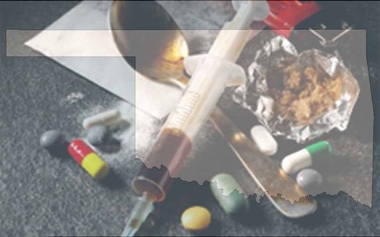US Surgeon General, tribal leaders work to combat addiction

STILLWATER, Okla. (AP) — The crisis of addiction hasn't spared any demographic or any state, including Oklahoma.
The Trust for America's Health ranked Oklahoma fifth-highest for drug overdose mortality in the U.S., based on 2013 numbers from the Centers for Disease Control and Prevention, the Stillwater News Press (http://bit.ly/1WmaWXN ) reported. The same report said that rate tripled from 1999-2010.
U.S. Surgeon General Vivek H. Murthy, M.D. came to Oklahoma this week, holding meetings with communities and addressing the dual plagues of prescription drug abuse and opioid addiction.
He made a stop in Shawnee at the Citizen Potawatomi Cultural Center Wednesday during a meeting of the Southern Plains Tribal Health Board to have a town hall meeting with Native American youth who are developing prevention programs in their own communities.
He also held a listening session with tribal leaders, parents and youth.
It was the first-ever meeting between a U.S. Surgeon General and tribal leaders.
The tribal participants emphasized that emotional well-being and mental health are two important components of prevention in general but Native communities, like many traditionally disadvantaged groups, have added burdens.
One woman said Native communities also deal with poverty, abuse, sex trafficking and limited Indian Health Service resources in addition to addiction.
All factors have to be addressed for any strategy to be effective, she said. Historical trauma, the transmission of chronic trauma and unresolved grief across generations through behaviors and thought patterns, is also a concern for Native people.
It all combines in a toxic stew, resulting in nonmedical prescription drug use rates among Native youth higher than the Oklahoma average, with the amount varying by tribal area, and 65 percent higher than the national average.
"The prescription opioid epidemic is sweeping across the U.S. that has hit Indian country particularly hard," Murthy said.
Addressing the deficit in mental health care is important, almost more important than any other factor for improving public health, he said.
He applauded the community's efforts to integrate traditional culture into treatment and prevention through programs like IAMNDN, a culturally-centered youth substance abuse prevention program developed with young people from the Cheyenne and Arapaho Tribe, Absentee Shawnee Tribe, Chickasaw Nation and Comanche Nation.
Culture and identity are powerful things, he said. Problems become worse when people are feeling disconnected from others and themselves, losing their sense of identity and self-worth.
"When we strengthen culture and identity we strengthen our communities," Murthy said. "Community is an antidote to isolation."
He told the students he wants them to know that we shouldn't be defined by others, we should be defined by who we know we are.
He said during an exchange with one young woman, she told him she wants people "to know that we matter."
"Your lives do matter," Murthy said. "You matter. I see you and will do everything I can to help. We cannot be strong unless our people are healthy."
MICHELLE CHARLES, Stillwater News Press
An AP Member Exchange shared by the Stillwater News Press.
___
Copyright 2016 The Associated Press. All rights reserved. This material may not be published, broadcast, rewritten or redistributed.
The Gayly - 5/29/2016 @ 9:52 a.m. CDT





